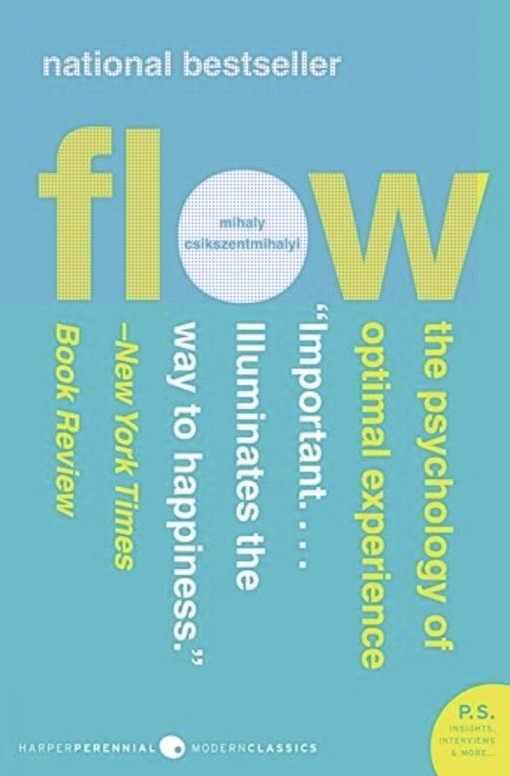We begin the meat of our re-read of Mihaly Csikszentmihalyi’s Flow with Chapter 1, Happiness. The Chapter opens by focusing on the definition of happiness or the lack of a universal definition. Csikszentmihalyi highlights that happiness requires an individual perspective stating, “The best moments usually occur when a person’s body or mind is stretched to its limits in a voluntary effort to accomplish something difficult and worthwhile.” What we perceive as important and how we strive towards that goal operationalizes happiness at a personal level. The author’s statement also illuminates why achieving a goal does not generate long-term happiness, when the goal is attained the happiness generated by working toward the goal disappears. Similarly when the goal is dictated, a common problem in hierarchical leadership, the “voluntary effort” part of the formula disappears and so does the happiness derived from stretching toward the goal.
The idea of goal-driven behavior is not foreign to human nature. For example. one of the principles of Stoic philosophy is a virtue – a values-driven life of integrity, ethical behavior, and service. Service is working towards something of greater good, a purpose, and is a requirement to achieve flow and true happiness. This fits well with the author’s observations.
In the 2007 book The How of Happiness, Sonja Lyubomirsky, a professor of psychology at the University of California, defines happiness as “the experience of joy, contentment, or positive well-being, combined with a sense that one’s life is good, meaningful, and worthwhile.” The definition leaves room for happiness to be interpreted based on personal context. It would be difficult to construct an experiment to measure happiness that could be repeated in other cultures and by other researchers. Social norms and culture affect how each person pursues and interprets happiness.
One of the basic messages in the chapter is that we can influence our consciousness and therefore our inner experiences. By extension controlling our inner experience means we control our own happiness. Accepting that events and outside forces are not in control of our happiness puts the burden of how we interpret what is happening around us on our shoulders. That is a lot of effort because as the author points out, “The universe is not designed for humans to be happy. Humans have a little influence on the universe.” The question that Chapter 1 left me with is whether happiness is a state that humans can strive to attain and hold on to for long periods or is a sawtooth wave that we derive moment by moment the more normal pattern. The answer boils down to a set of choices about what we think of as important. Csikszentmihalyi states, “Whether or not, we’re happy, depends on our inner harmony, not on the controls we can exert over the great forces of the universe.”
Csikszentmihalyi ends the Chapter by asking the reader to define their happiness based on the rewards of the present rather than simply potential rewards in the future. This shortcircuits the cultural paradox of rising expectations and stops postponing happiness until tomorrow. That redefinition requires virtue, in the Stoic, sense, to shape our decisions as we craft our happiness and move us closer to flow.
I have read and quoted parts of Mihaly Csikszentmihalyi’s Flow over the last ten years. It has been on my list to read cover to cover for several years. My wife pointed out that my copy has yellowed, so it’s time to read now, better late than never :). We began the re-read on May 18 and plan to complete it on August 3 or 10th.
Buy a copy and read along – https://amzn.to/4b5kPmb
Week 1: Preface and Logistics – https://bit.ly/3WLjFHU

Leave a comment